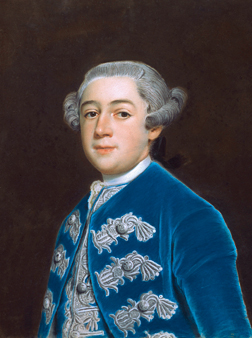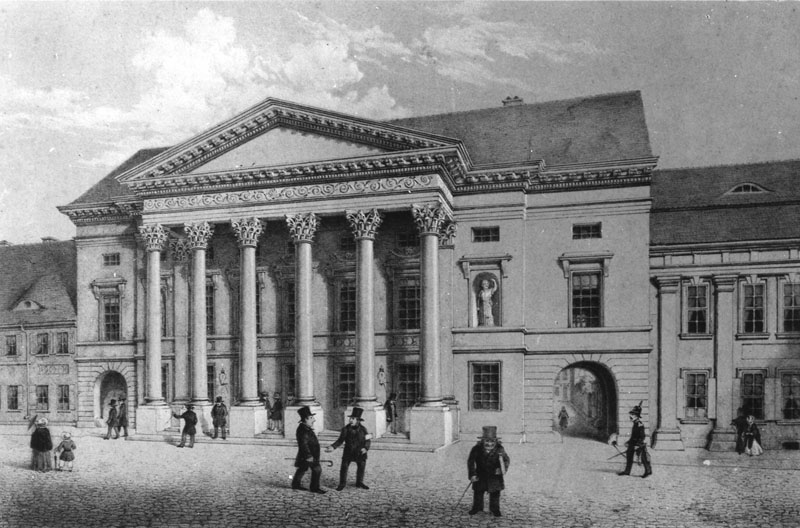7. Anhalt-Dessau: Model Land of the Enlightenment?
Anhalt-Dessau was, at the end of the 18th century, among the so-called “less-powerful” imperial territories. The territory owed its reputation beyond its narrow borders to the willingness of Prince Leopold III (Friedrich Franz von Hanhalt-Dessau) to display his prestige in the Garden Kingdom of Wörlitz. This landscaped garden and its buildings already earned the prince a great renown during his lifetime. Today, the Garden Kingdom is an outstanding example of English landscape architecture, and is part of the World Cultural Heritage of the UNESCO.
The garden, as the embodiment of the Prince’s prestige largely shapes the image that we still have today of the builder of this landscaped garden: he was a prince dedicated to reform, enlightened, a benevolent sovereign, and a promoter of religious tolerance. Thus, Prince Franz is, along with other rulers in the Old Empire in the second half of the eighteenth century, such as Friedrich the Great of Prussia or Carl August of Saxony-Weimar, perceived much more as an individual outstanding personality than as a representative of his time and status.
In the case of Prince Franz von Anhalt-Dessau, the image of his personality is also greatly influenced by the fact that the assessment of his leadership was until now based mostly on statements from writers and intellectuals that he sponsored.
The goal of this series of studies is to take into consideration the practice of sovereignty and the representation of rulership and thus to consider the social and political contexts much more than has been done so far. The “practice of representation” of the Prince was dominated by political motives which had not so much to do with the reformative concepts of the Enlightenment, but rather with concepts of legitimation of the dynasty and the goal of princely assertiveness and claim to status, as the conference on the political dimension of garden design (on which a book was published in the autumn of 2014) has shown. Paul Beckus’ research on the princely court and the administration practices of Prince Franz (published in January 2016) has already made clear that the court corresponded much more to the usual conventions of princely court practices in the Old Empire than has heretofore been acknowledged in the research on Hanhalt-Dessau. Another project on the development and interpretation of the council’s protocols examines in depth for the first time the Prince’s practice of government over the entire period of his reign, and will also make possible a new appraisal of the Princes’ political governance.



